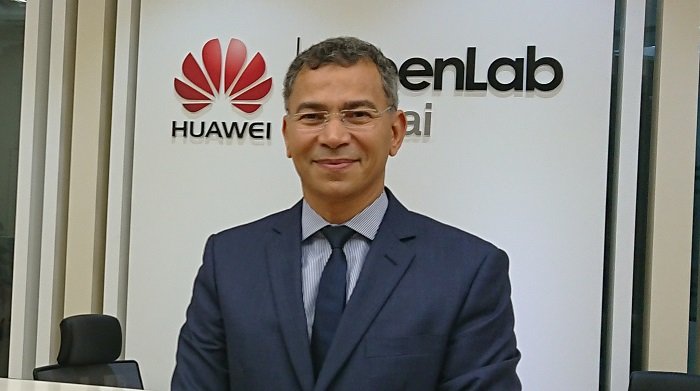Digital transformation is not just a concept but a reality. It is happening all around us, as measured by the use of digital technologies like social media, mobility, analytics, etc. But consumer enthusiasm towards digitization is only one side of the coin. The region’s public sector has big ambitions and many countries in the region are investing heavily to digitally transform while others have already begun implementation of core digitization initiatives. This transformation may not be apparent, but it is very real and is being implemented in the digitization of whole infrastructures and business processes.

Alaa Elshimy, Managing Director & Vice President for Enterprise Business in Middle East talks about Huawei’s commitment to transform organizations digitally across the region by enabling them to transition smoothly from traditional models to digital ones.
Globally, the digital transformation market is expected to reach approximately $431.71 billion in 2021, according to the report by Zion Market Research. Deloitte puts the region’s public sector spending to over $15 billion in technologies enabling digital transformation.
This region is nearly halfway in its journey to transform digitally and as of today some countries in the region are quite ahead of several countries in the world. UAE in particular is the most advanced nation in the region, followed by Saudi Arabia in terms of investment towards digitization.
“There are a number of factors that are directly or indirectly pushing organisations globally to plan their digital transformation agenda and act on it. In this region, economy of a number of countries is largely oil-based. Fluctuations in oil prices have pushed these countries to explore more efficient processes. In addition to this, upcoming mega events like UAE’s Expo 2020, Saudi’s Vision 2030, Bahrain’s Vision 2030, etc. are key enablers of digital transformation and have strongly contributed to increased awareness of its importance,” says Elshimy.
Huawei has helped many enterprises to automate and significantly improve their processes to cut losses or enhance safety and security, he adds. To quote an example, take Honeywell. In the oil field, the company has detectors that alert the bearer of any poisonous gas leaks, however, there still remains a chance for mishap. We have provided Honeywell with a solution where we customize their detector by inserting a sim in it to send out the alert notification not just to the person on ground but also to various other personnel like the supervisor, security, medical team, etc. to respond in a timely fashion to save the lives of people and control the damage immediately.
He emphasizes that if an organization has not yet embarked on its digital transformation journey, then it is time to do so. Migration of an organization from legacy to digital cannot happen overnight, rather it happens over time and requires the formulation of a clear roadmap to being digital.
Digitized enterprises require an ICT infrastructure that integrates cloud-pipe-device, and an open, flexible, agile and safe platform to forge close partnerships to develop rich applications and create an innovative, win-win ecosystem, which will drive the digital transformation of enterprises. And that is what we strive to provide.
“Also, digital transformation cannot be achieved with one single technology and we have an edge over any competitors with our comprehensive portfolio of ICT products, services and solutions that enable organizations across all verticals to automate their processes. In the utility vertical alone, we are enabling several companies in the region and globally we are working with organisations at different levels in 73 countries,” explains Elshimy.
Another example to demonstrate how Huawei is assisting organizations improve efficiency and lower costs, is the implementation of Huawei’s AMI Solution at Nigeria’s electricity distribution network provider, Ikeja Electric. This solution builds a smart metering network that collects power utilization information in real time and generates alarms on electricity theft incidents and further IT-based application systems analyze line losses and electricity theft behaviour. After implementation of these systems and processes the company witnessed 55% reduction in monthly line loss and 38% increase in growth rate of monthly cash flow.
We work closely with our partners to develop innovative ICT solutions, and help global customers drive digital transformation. Digital transformation today stands where cloud solutions were just a few years back. In the coming years, just like cloud, the speed of this transformation will be higher in terms of execution, becoming well ingrained into every organization’s and country’s digital strategy, concludes Elshimy.












